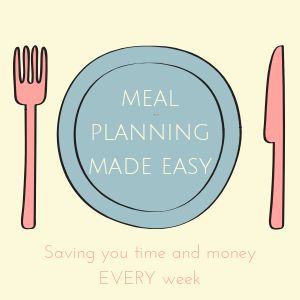When you become a parent, one of the things you typically do is think about your future – and that of your family. You’re a fully-fledged adult and have a lot of responsibilities to bear in your life.

One of those responsibilities, of course, is making sure that your family’s financial future is secure when you’re not very ill or not around anymore. Many insurance products can ease the burden of financial strain when you’re unable to provide for your family.
The trouble is, how do you know which insurance products are the right ones to take out? A cursory search online will undoubtedly reveal a plethora of products, so it makes sense to opt for the right ones for your needs and that of your family.
The purpose of this blog post is to help you decipher what’s on the market and what it could mean for you and your family. You can use this guide to help you learn more about insurance, but you should ultimately seek professional advice on the topic.
With all that in mind, here’s what you need to know:
The importance of insurance
When you drive a car on public roads, you need car insurance to protect you against any accident claims. And when you go on holiday, travel insurance will ensure you get treated by a local hospital if you get injured.
Similarly, you need to consider insurance to protect you and your family in case you can’t financially provide for them. No-one knows what the future holds, and you could live your life relatively trouble-free. Or you could suffer a serious injury or worse.
The truth is, you can’t predict what may or may not happen to you, and so it’s seldom a good idea to forgo personal insurance products. You may think that insurance is expensive. But shopping around will help you get the best deals!
Which types of insurance do you need?
Each parent will have a different set of personal circumstances. For example, you might have a lump sum of cash in your savings account that you can use to cover your bills long-term in case of injury or worse.
Of course, many people aren’t so lucky to be sitting on a substantial sum of money. That’s why insurance products can help with any financial deficit if you’re unable to work or you sadly pass away.
The main types of insurance products to consider are:
Relevant Life Insurance
The majority of employers in the UK offer a variety of benefits to their employees. One of those benefits is typically relevant life insurance cover. In a nutshell, relevant life insurance gives employees a ‘death in service’ benefit.
What that means is if you die while you’re still working for your employer, the policy will pay out a tax-free lump sum to your nominated beneficiaries. In your case, this would be your spouse or partner and your children.
It’s an insurance product that usually gets offered to certain ‘key’ employees of a business. However, some companies may offer it to all employees regardless of their standing in the firm.
If you’re self-employed or have your own company, you may wish to consider offering that insurance both to yourself and others in your firm. This handy relevant life calculator can give you a rough savings comparison between that and standard life insurance.
Standard Life Insurance
What happens if your employer doesn’t offer relevant life insurance? Another option that’s open to you, of course, is standard life insurance. That’s where you’d get quotes and set up a policy personally.
There are many comparison sites online where you can get quotes for standard life insurance. Plus, there are thankfully more insurers willing to accept people with certain medical conditions such as pre-existing cancer or depression.
Income Protection Insurance
The previous insurance policies will pay out a lump sum to your family when you die. However, what happens if you get seriously injured and can’t work for a long time? Don’t worry, because income protection insurance can help you out there!
Income protection insurance, as the name suggests, protects your income when you can’t work due to a serious injury. It’s a useful insurance product for self-employed people, particularly as they aren’t entitled to SSP (statutory sick pay).
Medical Insurance
Lastly, it would help if you also considered a medical insurance policy. You may assume that you don’t need one because you can use the NHS. However, private medical insurance can get you seen by specialists and treated much quicker than on the NHS.
Plus, it can also be a welcome policy to have if delays to receiving treatment mean you are out of work for an extended period.
Don’t miss out on future posts like this – receive updates directly to your inbox by email by adding your email address here and hitting subscribe. You can also follow me on Twitter or BlogLovin and I’d love to see you over on my Facebook page and on Instagram. If you’re interested, you can find out more about me here and while I’ve got your attention, if you’re wondering why some of my posts lately are a little bit less frugal then have a read of this post. 😉
Collaborative Post









